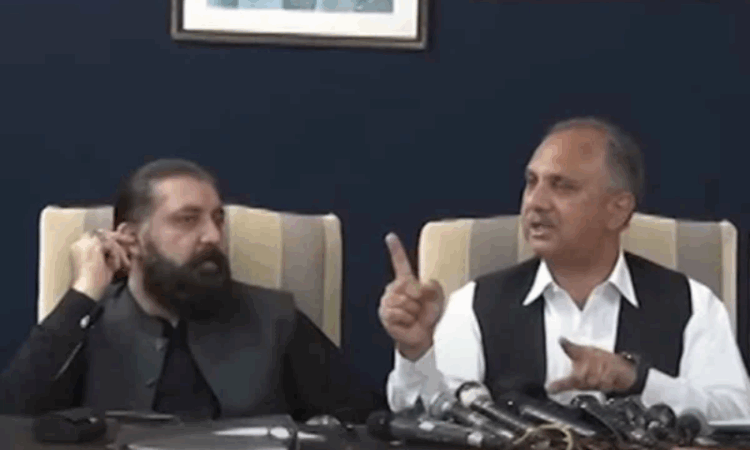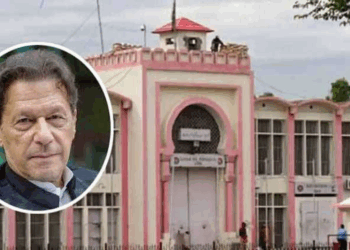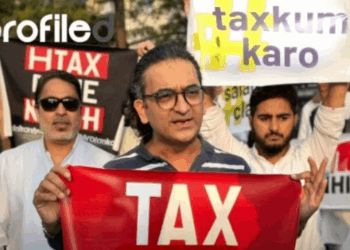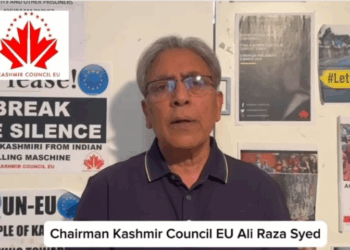Islamabad, June 9, 2025: The Pakistan Tehreek-e-Insaf (PTI) on Monday launched a scathing critique of the federal government’s presentation of the Pakistan Economic Survey 2024–25, accusing Finance Minister Muhammad Aurangzeb of justifying poor economic performance by blaming global trends.
At a joint press conference in Islamabad, PTI Secretary Information Sheikh Waqas Akram and Leader of the Opposition in the National Assembly Omar Ayub Khan accused the government of misrepresenting economic realities and downplaying the suffering of the masses.
“The finance minister presented the Economic Survey in an apologetic manner,” said Sheikh Waqas. “Instead of owning failures, he chose to hide behind global economic headwinds. These are the same people who used to ridicule our 6.5% GDP growth under PTI.”
Sheikh Waqas described the survey as a “Form-47 economic document,” a reference to alleged election rigging that PTI claims brought the current government to power. He argued that the survey is full of “manipulated figures, disconnected from public suffering.”
Highlighting a grim picture of socioeconomic distress, he claimed that nearly 45% of Pakistanis now live below the poverty line, and more than 30 million people have fallen into poverty over the last three years. “This number exceeds the populations of countries like New Zealand or even several Gulf states. What economic recovery is the government talking about?” he asked.
He also lambasted the government’s claims of economic management and social welfare. “President Asif Zardari once claimed they came to reignite the stoves of the poor. It’s been three years — no stoves are burning,” he said.
Omar Ayub, who serves as the Leader of the Opposition in the National Assembly, echoed the criticism, saying that the reported 2.7% GDP growth was detached from reality and did not reflect conditions on the ground.
“This is Shehbaz Sharif’s fairy tale budget — it might read well in boardrooms, but not in the markets or homes of struggling Pakistanis,” Ayub said. “People have lost all purchasing power, yet ministers continue to claim that inflation is under control.”
Ayub challenged government officials to accompany him to local markets to see firsthand the impact of inflation on ordinary citizens. Referring to the sharp rise in emigration, he added, “About 3.2 million young Pakistanis have left the country in search of better opportunities — that alone is a damning verdict on the government’s performance.”
While Ayub acknowledged that Finance Minister Aurangzeb may personally be an “honest man,” he said the minister was “surrounded by corrupt and incompetent elements” who are “crippling the economy.”
The Pakistan Economic Survey 2024–25, unveiled earlier in the day, reported modest growth of 2.7% and headline inflation averaging 4.6%. The government touted achievements such as a current account surplus, record remittances, and reduced policy interest rates. However, critics argue these statistics fail to address job losses, rising informal labor, agricultural distress, and declining purchasing power.
Independent economists remain divided. While some analysts, such as those from the Pakistan Institute of Development Economics (PIDE), see positive signs of macroeconomic stabilization, others warn that GDP growth is insufficient to absorb a labor force growing at nearly 3% annually.
International development bodies including the IMF and World Bank have projected modest recovery for Pakistan in 2025, but stress that “inclusive, sustainable growth remains elusive without structural reforms.”
PTI leaders announced they would present a parallel economic assessment in the coming week to counter the government’s narrative and push for policy changes focused on food security, job creation, and industrial revival.
“We will take this debate to every platform, from the National Assembly to the streets,” said Sheikh Waqas, adding that the opposition will not allow the public to be “misled by sugar-coated presentations.”








